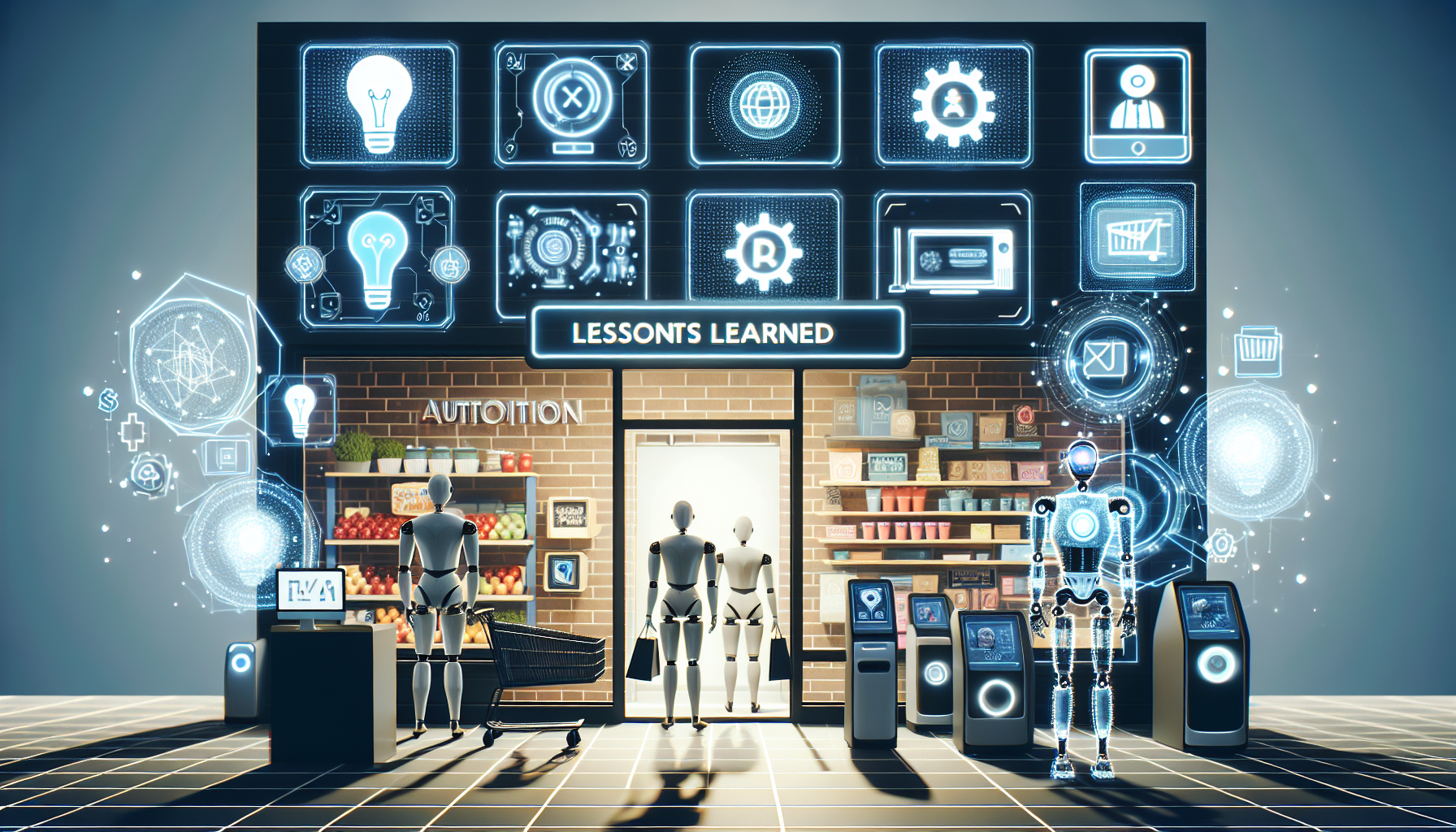AI and Automation in Retail: Transformative Success Stories
1. AI-Driven Customer Insights
Retail businesses are increasingly leveraging AI to gain deeper insights into customer behavior. Companies like Sephora have implemented AI-driven technologies to enhance the customer shopping experience. By using data analytics and machine learning algorithms, Sephora analyzes customer preferences, purchase history, and browsing patterns. This personalized approach has resulted in a significant increase in customer engagement and loyalty. Their AI-driven chatbot, for example, assists customers in finding products tailored to their specific needs based on their prior interactions.
2. Inventory Management Automation
Companies such as Walmart have embraced automation in inventory management, utilizing AI algorithms to predict demand accurately. This has led to a more efficient supply chain, reducing overstock and understock scenarios. Walmart’s advanced systems analyze historical sales data, weather forecasts, and local events to optimize inventory levels. As a result, they minimize waste and improve profits, all while ensuring they meet customer demand without delay.
3. Personalized Marketing Strategies
Amazon set a benchmark in personalized marketing through extensive use of AI. Its recommendation engine analyzes user behavior and preferences to suggest products that a customer is likely to purchase. This system utilizes collaborative filtering techniques, which not only increases sales but also enhances customer satisfaction. Marketing campaigns tailored to individual user preferences have been shown to yield higher conversion rates, proving the effectiveness of AI in retail marketing.
4. Visual Recognition Technologies
The adoption of visual recognition technologies is revolutionizing the in-store shopping experience. Retail giants like Nike have employed AI-powered facial recognition software to detect customer sentiment in real-time. This technology helps personalize the shopping experience by understanding customer emotions and preferences during their store visits. As a result, staff can offer tailored assistance, thereby enhancing customer satisfaction and loyalty.
5. Chatbots and Virtual Assistants
Retailers such as H&M employ chatbots and virtual assistants to streamline customer service operations. These AI-driven systems handle inquiries, provide product recommendations, and assist with order tracking 24/7. H&M’s virtual assistant can learn from customer interactions to deliver increasingly smart responses, alleviating workload from human agents and significantly improving response times. The result is a more efficient operation and enhanced customer experience.
6. Robotics in Warehousing
Automation through robotics is gaining traction in retail warehousing. Companies like Alibaba utilize autonomous robots to navigate warehouse space, assemble orders, and streamline logistics. This automation reduces human error and increases efficiency, allowing for faster order fulfillment. Thanks to robotics, Alibaba has significantly shortened delivery times, establishing a competitive edge in the e-commerce space.
7. Augmented Reality Shopping
IKEA has harnessed augmented reality (AR) technology to engage customers in the shopping process. Through their app, customers can visualize how furniture will look inside their home before making a purchase. This use of AI paired with AR not only enhances the customer experience but also significantly reduces return rates, as customers have a clearer understanding of what they are buying.
8. Voice Commerce Innovations
Incorporating voice-activated technology has reshaped how retailers approach sales. Retailer Target has developed integrations with Google Assistant, allowing customers to shop via voice commands. This hands-free shopping experience is especially popular among tech-savvy consumers who prefer convenience. Such innovations have marked a significant paradigm shift in retail, with voice commerce expected to grow exponentially in the near future.
9. Dynamic Pricing Strategies
Dynamic pricing strategies driven by AI algorithms are providing retailers with the ability to adjust prices in real-time based on market demand. E-commerce platforms, including eBay, utilize machine learning to analyze competitive pricing and consumer behavior. This data-driven approach enhances revenue potential while remaining competitive in the fast-paced retail market. Dynamic pricing can also help manage inventory by incentivizing purchases during slow sales periods.
10. Smart Store Designs
The concept of “smart stores” is revolutionizing brick-and-mortar retail environments. Amazon Go, for instance, allows customers to enter a store, grab items, and walk out without going through a traditional checkout process. Using a combination of AI, sensors, and computer vision, Amazon tracks purchases automatically, charging the customer’s account accordingly. This innovative approach minimizes wait times, making shopping more efficient and enjoyable.
11. Enhancing Supply Chain Efficiency
AI is also making waves in logistics and supply chain management. Companies like Procter & Gamble utilize predictive analytics to streamline their supply chain, forecasting demand more accurately and optimizing distribution. By understanding supply chain dynamics, P&G dramatically reduces operational costs and improves delivery efficiency, ensuring products reach consumers faster than ever.
12. Customer Experience Analysis
The integration of AI tools that analyze customer feedback and sentiment is driving improvements in customer service. Retailers such as Zara are using AI to sort through vast amounts of customer feedback across social media and review platforms. By analyzing this data, they identify pain points and emerging trends, allowing them to adapt their product offerings and improve overall customer satisfaction significantly.
13. Ethical AI Practices
While the benefits of AI in retail are clear, ethical considerations are paramount. Retailers like Unilever are leading the way in implementing ethical AI practices. They focus on transparency in data collection and ensure that AI systems do not perpetuate biases or invade privacy. As consumers become more aware of data security issues, companies prioritizing ethical AI practices can gain customer trust and loyalty.
14. Future of Retail with AI
As AI and automation technologies continue to evolve, the future of retail looks promising. Innovations such as blockchain integration in supply chains, further enhancements in robotic fulfillment, and richer AR experiences are on the horizon. By learning from the success stories of industry leaders and remaining adaptable, retailers will harness the full potential of AI and automation, creating a more dynamic, personalized, and efficient shopping experience for consumers worldwide.


